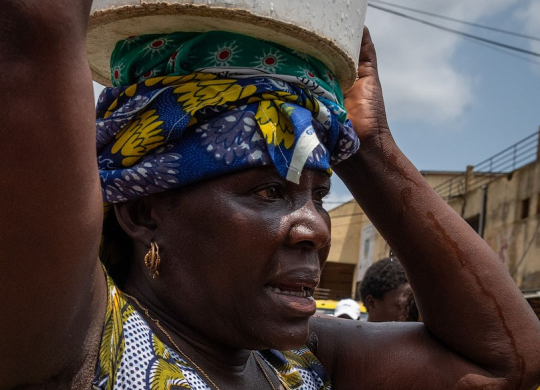How to get Sao Tome and Principe citizenship and visa for foreigners
Table of contents

This country - Sao Tome and Principe - is spread over islands in Central Africa. It consists of two islands, from which the state got its name. The island of São Tomé was discovered in 1471 and named after Saint Thomas. A year later, Principe was also opened. The country became independent in 1974.
The official language in the country is Portuguese. English is not spoken or understood here. By the way, the capital of the country of the same name is located on the island of Sao Tome, which occupies 90% of the total area of the country. This beautiful city includes beautiful examples of traditional colonial Portuguese architecture, as well as many beautiful parks. At the same time, remember: taking photos of the Presidential Palace, military, and other government buildings is strictly prohibited.
Citizenship of Sao Tome and Principe
Citizenship in São Tomé and Príncipe is governed by the 1990 National Law and the 2003 Constitution. The constitution provides that everyone born in São Tomé and Príncipe is a citizen, and allows both men and women to pass citizenship to their children. The law affirms very open access to citizenship for those born within the country, but for the majority of those born outside the country, citizenship is not automatically acquired by parents but depends on the child's application for citizenship.
Citizenship means that you are a citizen of that country and enjoy the rights and protections that citizenship provides. In general, this means that a citizen has the right to:
• live and work freely in this country;
• vote in elections;
• get a foreign passport and travel on it around the world;
• to receive protection and assistance in embassies in foreign countries.
How to get citizenship
By birth:
Being born in Sao Tome does not automatically confer citizenship. Exceptions are the following: a child born on the territory of São Tomé to (non-diplomatic) foreign parents who have settled in the country; a child born to unknown or stateless parents.
Originally:
A child born in Sao Tome with at least one parent who is a citizen of the country. A child is born abroad if at least one of its parents is a citizen of São Tomé if the parents register the child as a citizen of that country.
Marriage:
A foreign spouse of a Sao Tome citizen can obtain citizenship after renouncing their previous citizenship, establishing residency in the country, and declaring their desire to obtain Sao Tome citizenship.
Through naturalization:
Sao Tome citizenship can be obtained after the following conditions have been met: a person has lived in the country for at least five years, is of legal age, knows the language, is of high morals and integrity, has renounced previous citizenship, has viable means of support and is approved by the Ministry of Justice.
Dual citizenship is not recognized in the country.
Loss of citizenship
Voluntarily: a person voluntarily renounces citizenship. If it is allowed for her by law.
Involuntarily: if a person voluntarily acquired foreign citizenship or joins the service in foreign armed forces. Also, if a naturalized citizen cannot adapt to the customs of the country, or the person commits a crime.
Visa
To enter São Tomé and Príncipe, you must present your passport and proof of yellow fever vaccination. Holders of a valid US passport do not need a visa when visiting the country for up to 15 days. São Tomé and Príncipe do not currently have an embassy in the United States. Travelers transiting through Gabon can obtain the latest information on entry requirements from the Sao Tome and Principe Embassy in Gabon.
There are also no restrictions on the import of foreign currency. However, visitors leaving the country must report any amounts equal to or greater than €10,000 and be able to provide financial statements to prove that they entered the country with more than the amount with which they plan to leave. If you are going to this country, be aware that São Tomé and Príncipe may deny entry to people from countries affected by the Ebola virus. For a better understanding of all the nuances, we advise you to contact a specialist in legal matters.
Recommended articles
2 min
Residence permit
How to get a permanent residence permit in Malaysia in 2025: a detailed guide
Thinking about building a long-term future in Malaysia? Find out how to get a permanent residency in Malaysia in 2025. A complete guide on requirements, documents, application process, benefits and alternatives like MM2H
06 sie. 2025
More details2 min
Residence permit
A residence permit is a mandatory document that expats must have to legally reside in the Netherlands. Find out what requirements foreigners have to obtain the document and what is the procedure for obtaining a residence permit in the Netherlands
10 paź. 2025
More details5 min
Work
6 min
Treatment
All materials and articles are owned by VisitWorld.Today and are protected by international intellectual property regulations. When using materials, approval from VisitWorld.Today is required.